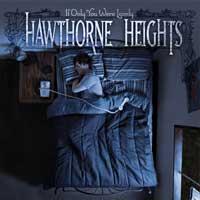Video Game Review: Ghost Recon Advanced Warfighter (Xbox 360)

Although the Xbox 360 launch was riddled with sub-par ports of last generation's games, there was always hope on the horizon. Announcements of games like "Ghost Recon," "Gears of War" and "Too Human" looked to provide real next-generation thrills rather than original Xbox rehashes.
Finally, "Tom Clancy's Ghost Recon 3: Advanced Warfighter" has been distributed to stores, and gamers everywhere can finally witness something on their systems that justifies their $400 purchase.
For those of you not familiar with the series, the "Ghosts" are an elite special force unit reminiscent of Delta Force that handle tactical operations with a combination of advanced technology, stealth and extreme force.
Naturally, the first thing to catch anyone's eye upon playing is the graphics. They're not just good in the general sense, but also in the incredible attention to detail Ubisoft obviously worked on. Every detail on your soldier's uniform looks perfect, right down to the wrinkling of the material. If you put on your night-vision goggles, not only do warm bodies show up, but also the shell-casings from your gun. Because the entire campaign portion of the game takes place in Mexico City, the heat waves and blazing sun affect your field vision and play an integral role in where you want to position your character. In other words, we're not on the Xbox anymore.
The game is not without its flaws, however.
Commanding your troops ranges from mildly annoying to extremely aggravating. Although the game really makes you believe like you are personally in a "Black Hawk Down" setting, having your troops act like brain-dead nincompoops really sends you crashing back down to earth. They often run straight in to enemy fire, cluster together and become sitting ducks, or do not follow you when you really need them too. Thankfully, the game allows you to heal them at will, granting you are not under fire at the moment.
And heal them you will. For some reason, Ubisoft found it important to include every gamers most hated level design: That of the "escort mission." Naturally, this means you have to escort a weakling character, whom you have no control over, past viscious enemies while avoiding shooting said escort yourself, all the while trying to keep you and your troops alive.
Additionally, the game has only two difficulty settings that should be named "Hard" and "Harder." There is no easy setting to be found anywhere. "Ghost Recon" is not the type of game for the casual "Madden" player nor for anyone who starts throwing controllers around the room when the screen reads "Game Over." You're going to die, and you will die often. In true Tom Clancy-game tradition, enemies will often kill you in one or two shots, and oftentimes you will have no idea where the shot came from. Realistic? Yes. Fun? Depends on your disposition.
As for me, I like to plot out my next move and move cautiously, always on the look-out for enemies.
You're also going to need those skills for the best part of the game: Multiplayer. It is almost a given that "Ghost Recon" will become the "Halo 2" Xbox Live experience for the 360. Not only does the game bring the same jaw-dropping visual experience as the single player, but the maps are ingenious, as is the gameplay. I will go as far as to say the multi-player "Ghost Recon" experience trumps "Halo 2" in terms of strategy. In team games, it is almost a death wish to not talk to your teammates, and ambushes and flanking strategies demand players work together. Having a great shot doesn't hurt either.
Grade: AB
This article was originally published in the March 30, 2006 edition of the Marquette Tribune










